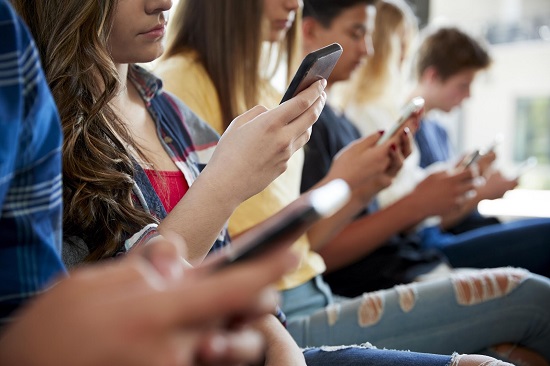Do social media is damaging the mental health of teens? Some studies show that online connections with small groups of people can be beneficial to teens, while other research points to a rise in symptoms of anxiety, depression and eating disorders.
Social media is constantly changing and evolving. Plus, no long-term studies have been completed.
One study out of the University of Pittsburgh, for example, found a correlation between time spent scrolling through social media apps and negative body image feedback. Those who had spent more time on social media had 2.2 times the risk of reporting eating and body image concerns, compared to their peers who spent less time on social media. The participants who spent the most time on social media had 2.6 times the risk.1
Results from a separate study from the University of Pittsburgh School of Medicine showed that the more time young adults spent on social media, the more likely they were to have problems sleeping and report symptoms of depression.2
And another small study of teens ages 13-18 from the UCLA Brain Mapping Center found that receiving a high number of likes on photos showed increased activity in the reward center of the brain. Further, teens are influenced to like photos, regardless of content, based on high numbers of likes.3 Bottom line: It feels good to be “liked” and herd mentality is big on social media. Like what others like and you’re in.
There are some positive aspects to social media. It’s important to remember that teens are hardwired for socialization, and social media makes socializing easy and immediate. Teens who struggle with social skills, social anxiety, or who don’t have easy access to face-to-face socializing with other teens might benefit from connecting with other teens through social media.
But, while teens can use social media to connect and create friendships with others, they also confront cyberbullying, trolls, toxic comparisons, sleep deprivation, and less frequent face-to-face interactions, to name a few.







































